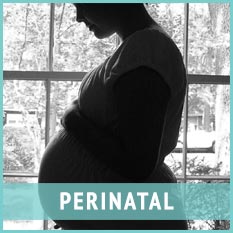Resources & Links
Are You Taking Care of Yourself?
![]() CLICK HERE to view/download a PDF of this section
CLICK HERE to view/download a PDF of this section
Answer YES or NO to the following questions:
- Do you take time to have a leisurely bath or shower?
- Do you take time to brush your teeth?
- Do you have three distinct meals a day?
- Do you sit during those meals?
- Do you eat without a child or baby in your lap?
- Do you rest or nap while your baby naps?
- When your partner, family or friends offer to help do you accept?
- Do you ask for help when you need it?
- Do you have someone watch your child(ren) so you can go out and do something you really enjoy?
- Do you allow yourself to sit without worrying about all the work you have to do?
- Do you have friends you can call when you are down, friends who will really listen?
- Do you buy things for yourself not just for the baby/children?
- Do you read a magazine or book just for pleasure?
- Do you say yes or no to sex because that is what you want?
- Do you get enough exercise?
- Do you make time for solitude, if you want it?
- Do you ever accept yourself for who you are?
- Can you remember the last time you laughed until you cried?
How many questions did you answer yes too? Work on one or two things from the above list to help improve your self care.
Common Thinking Distortions
![]() CLICK HERE to view/download a PDF of this section
CLICK HERE to view/download a PDF of this section
When we are under excess stress, anxiety or feeling depressed it is easier to be prone to thinking in a distorted manner. Here is a list of common thinking distortions… is there one that you can relate to? By learning to correctly identify your distorted thinking patterns you can then learn to challenge and reframe the thought. Then, over time, the distorted thoughts will be replaced with more rational and balanced thoughts.
All or Nothing Thinking
This is when you are thinking in absolutes, as either black or white, good or bad with no middle ground in site. You tend to judge people or events using general labels such as "I am hopeless," "I will never learn how to do this," "My life is never going to change," "my baby is never going to sleep through the night." In this type of thinking it is easy to condemn yourself completely as a person on the basis of one event.
Catastrophizing
You tend to magnify and exaggerate the importance of events and how awful or unpleasant they will be, overestimating the chances of disaster; "whatever can go wrong will go wrong."
Personalizing
You take personal responsibility and blame for anything unpleasant even if it has little or nothing to do with you. “It is my fault”.
Negative Focus
You tend to focus on the negative, ignoring or misinterpreting positive aspects of a situation. You focus on your weakness and forget your strengths, looking at the dark side.
Jumping to Conclusions
You make negative interpretations even thought there are no definite facts. You start predicting the future and take on the role as the mind reader.
Living by Fixed Rules
You tend to have fixed rules and unrealistic expectations of self regularly using words such as, 'should', 'ought', 'must', 'can't'. This leads you to feeling overwhelmed, guilty and disappointed.
Checklist of Postpartum Depression Symptoms
There are a wide range of PPD symptoms, this checklist will give you a framework to assess if you are possibly suffering from PPD.
The following feelings are fairly normal to be experiencing:
- sad
- weepy
- guilty
- isolated
- angry
- resentful
- exhausted
- anxious
- tense
The following symptoms are more serious and need to be addressed by a professional:
- ashamed
- overwhelmed
- drained
- excessive crying
- lonely
- helplessness
- mood swings
- excessive self doubts
- change in appetite
- physical symptoms
- hopelessness
- worthlessness
- distracted
- memory problems
- extreme agitation
- panic attacks
- loss of confidence
- thoughts of hurting yourself
- thoughts/fantasies of hurting your baby
- hallucinations













